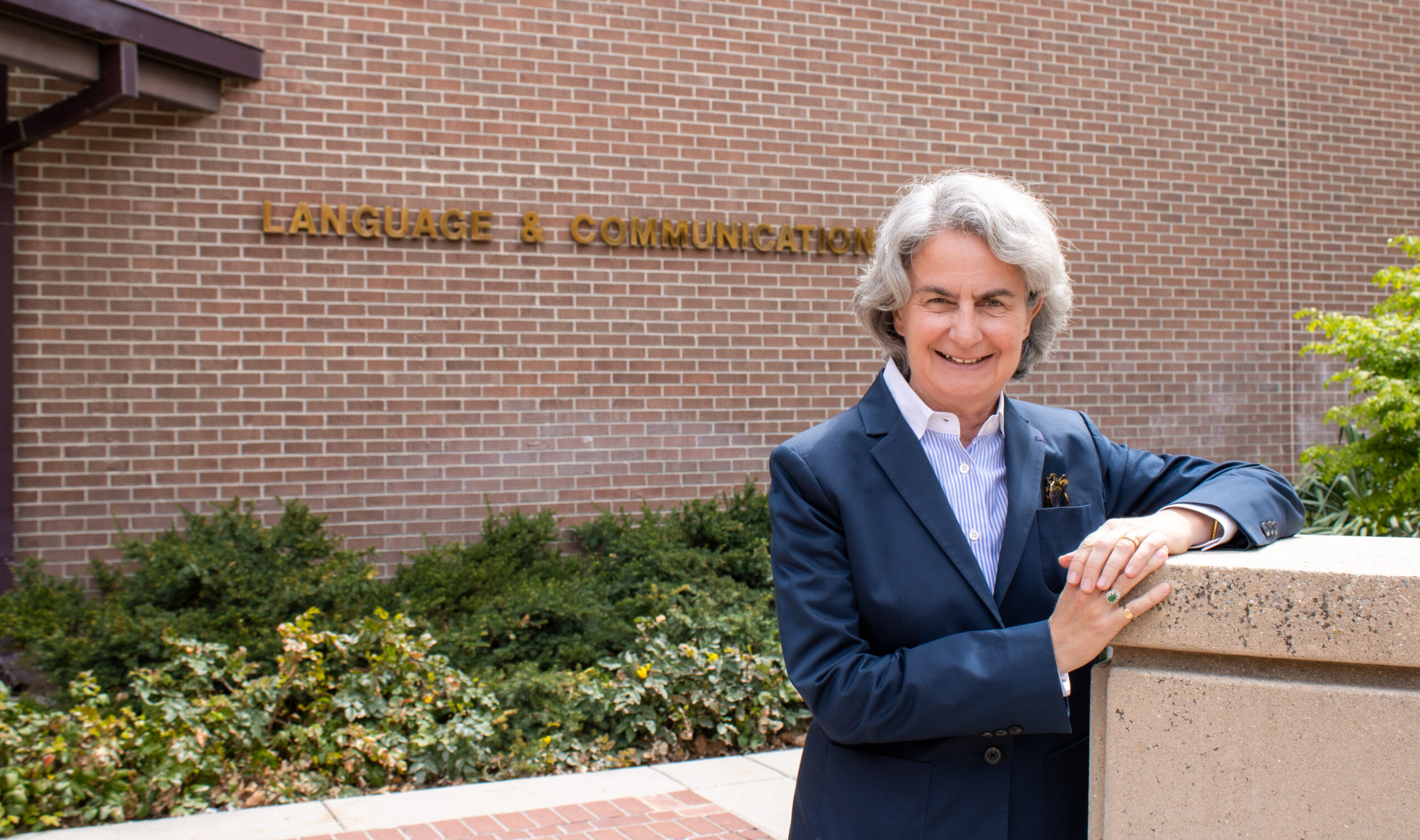There are many reasons to study a language: curiosity, personal growth, cultural enrichment, literary analysis, cognitive development…the list goes on. But one reason in particular stands like a lighthouse to French professor Anne Lair: career development.
“My goal is to expose students to language and culture for the professional world,” said Lair. “At the end of the day, students will need a job. I want to show them what you can do with language skills.”
Born in the castle-dotted Loire Valley, France, Lair fell in love with language study at a young age. She first came to the U.S. around age 18, returned to France to major in English, and then bounced back to the U.S. to complete a doctorate in French with a focus on 19th-century culture and literature.
She now directs the U’s French Basic Language Program and oversees the French Bridge Program, which offers qualified students the opportunity to take advanced, college-level language courses while still in high school.
While her academic trajectory reflects a traditional appreciation of language acquisition for the study of literature, she also exalts the pragmatism of acquiring a second language and the cultural context that comes with it in the context of a modern, globalized workforce.
Relatively few Americans speak a foreign language. Only 25% of Americans feel capable of holding a conversation in another language, but without recent immigrants and their children, this number falls to about 10%. (Stein-Smith, Kathleen (2016). A Brief History of Foreign Language Learning in the United States.)
Lair points out that this puts American students at a disadvantage. For millennia, people have pursued a command of communication beyond their native language to fuel commerce. Not doing so means leaving opportunities on the table.
“A second language is going to take you much further than if you are monolingual. Language is for diplomacy. Language is for work. Think about all the possibilities,” said Lair. She refers to business and chemistry students in her classes that “get it” and recalls a student studying to become a dentist yet double majoring in French and chemistry to extend job prospects.
“Over 320 million people speak French around the world. That number is projected to be 700 million by 2050,” said Lair.
In addition to her duties as a professor, Lair serves as Honorary Consul to France, working with French businesses with locations in Utah and connecting Americans with French markets. She’s also busy connecting U students with professional opportunities in France. This semester, she leveraged her international connections to create two internships for business students in France. Next, she will work with a friend–Guillaume Gouze from the Centre de Droit et Economie du Sport in Limoges France–to create internships in the sports industry in Paris.
Her culture-first teaching philosophy ensures students are well-prepared to navigate workplace etiquette and relationship building, thanks to her course “Language for the profession” (Business French).
“[Language professors] are not here to teach how to do business but how to communicate and navigate culture so that students can thrive in the world. It’s so important to expose students to authentic experiences in the classroom and beyond. I am especially proud of these internships because going abroad initiated my own journey. It’s my turn to pay that forward,” said Lair.
…
Lair is just one example of the dedicated faculty at the U who are connecting students to opportunity through language. The University of Utah’s Department of World Languages & Cultures offers 22 languages. To learn more, visit languages.utah.edu.

